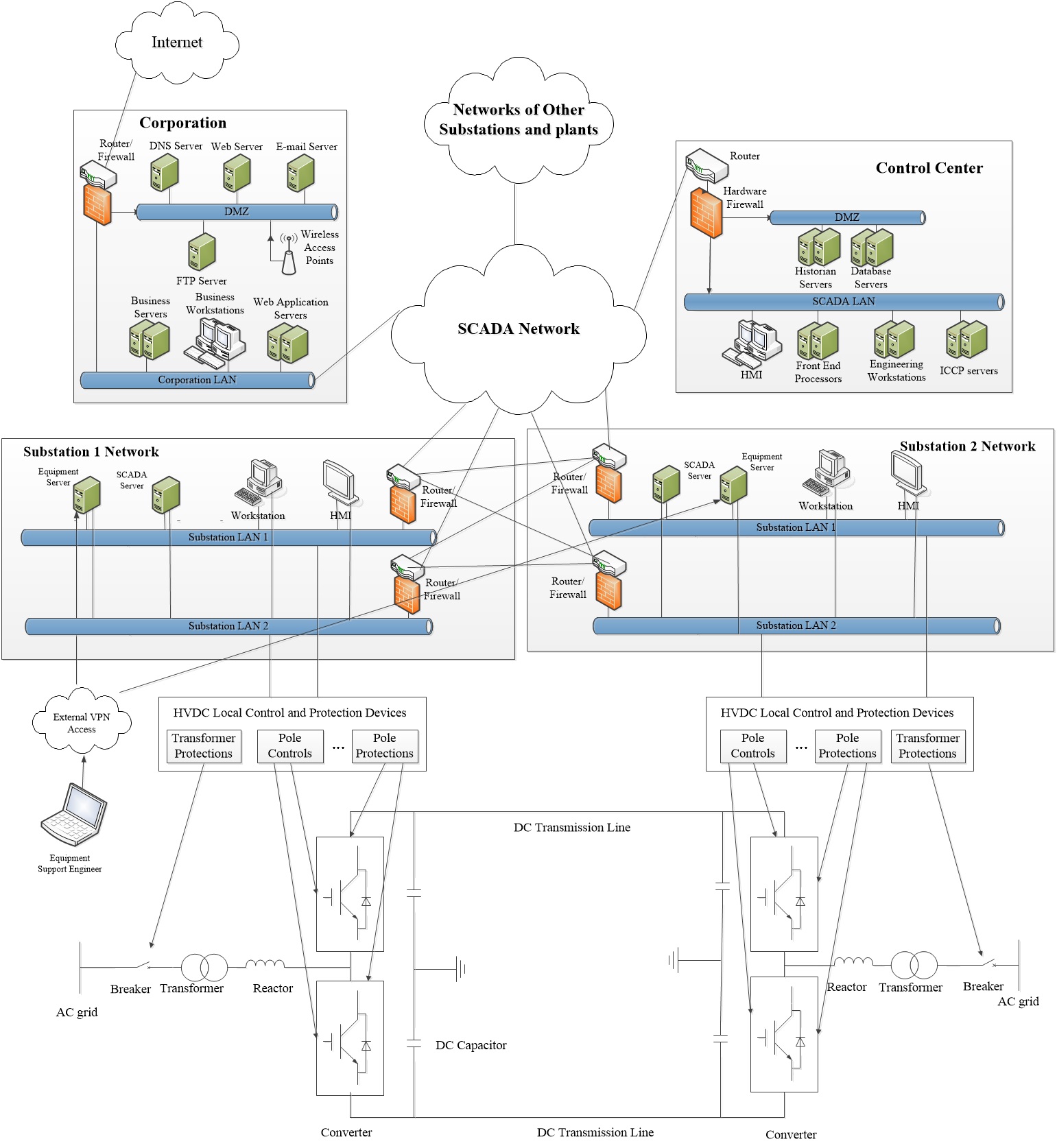Principal Investigator: Dr. Lingfeng Wang
With the rapid penetration of advanced power electronic devices and systems in current power grids at electricity transmission, distribution, and utilization levels, grid-connected power electronic systems (GCPES) play an increasingly important role in the ongoing smart grid initiative. There are three representative GCPES technologies, including flexible AC transmission systems (FACTS) devices, high-voltage/medium-voltage DC (HVDC/MVDC) transmission systems, and inverter/converter-based control systems. Advanced GCPES is essentially a cyber-physical system, whose performance is dependent not only on its physical characteristics and operating strategy, but also on its cyber parts such as the supervisory control and data acquisition (SCADA) system. The modern SCADA network is becoming more open with the wider deployment of Ethernet and Internet communication protocols. Also, the standardization of both hardware and software components is making the SCADA more vulnerable to cyberattacks. For example, it was reported that the contemporary SCADA system has been under constant cyber-attack attempts. As expensive facilities performing critical functions in power grids, GCPES could be easy targets for malicious actors. However, there has been very limited research associated with the cyber risks in various GCPES and their impacts on power grids. In this project, the cyber risks associated with the major GCPES will be analyzed, the possible attack paths and attack scenarios will be visualized, and the potential mitigation schemes will be recommended to inform stakeholders to comply with the NERC CIP (critical infrastructure protection) standards. There are four major research thrusts in this project, including cybersecurity analyses relating to FACTS devices, Distributed FACTS (DFACTS), HVDC/MVDC, and inverter/converter control systems. The proposed research will be highly beneficial to the current electric utilities industry by enabling the broader deployment of GCPES in power grids securely and reliably. The proposed qualitative and quantitative study will allow utilities, regulators, government agencies, and other stakeholders to evaluate and improve the cybersecurity posture of modern electric power systems involving GCPES technologies. The research outcomes will be useful to ensuring the compliance of NERC CIP for various stakeholders by properly securing the cyber-enabled power electronic assets.


Recent Comments